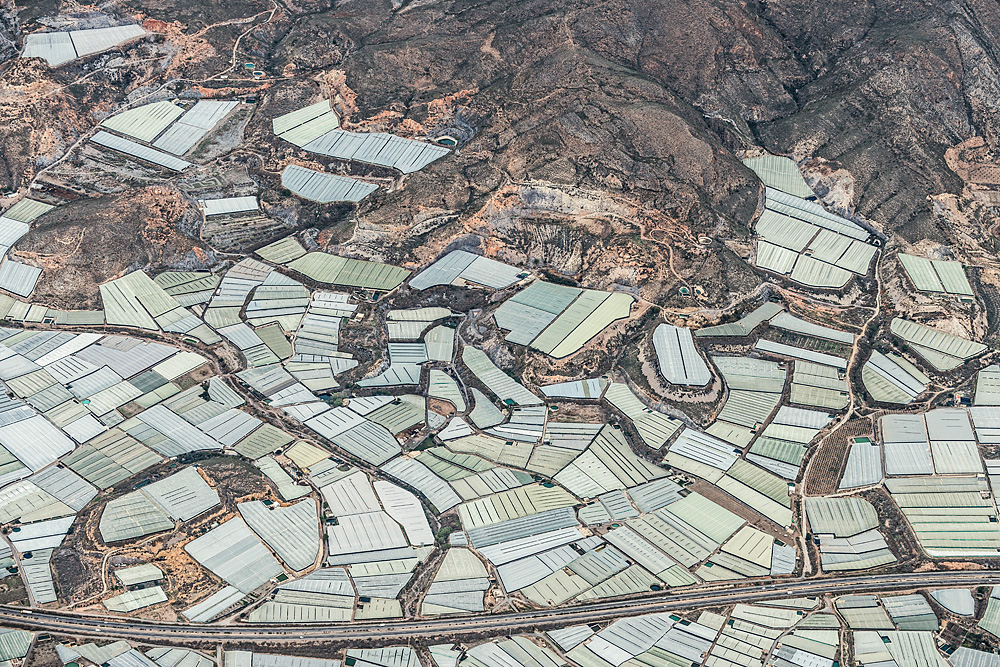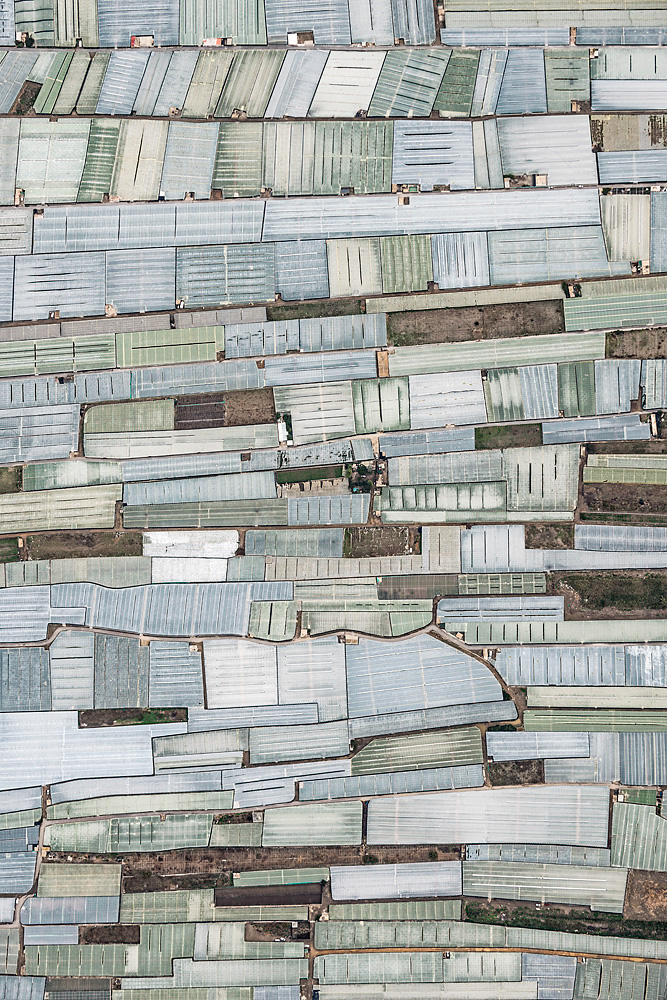Unveiling The Mystery Of Mer De Plastique In Spain: A Deep Dive Into Its Impact And Solutions
Imagine this: You're standing on the shores of Spain, gazing out at what seems to be an endless sea—but instead of water, it's a vast expanse of plastic. Welcome to the world of "Mer de Plastique Espagne." This phenomenon isn't just a metaphor; it's a harsh reality affecting not only Spain but the entire planet. As we delve into this topic, you'll discover how plastic pollution is reshaping our coastlines and ecosystems, and why it matters to you.
Plastic pollution has become one of the most pressing environmental issues of our time. In Spain, the term "Mer de Plastique" paints a vivid picture of the overwhelming amount of plastic waste that has accumulated in its waters. It's not just about unsightly trash—it's about the long-term damage to marine life, human health, and the economy. And if we don't act now, the problem will only get worse.
But here's the good news: there are solutions. By understanding the root causes of plastic pollution and exploring innovative ways to combat it, we can turn the tide. This article will take you on a journey through the science, impact, and potential fixes for this global crisis. So, let's dive in and see how we can make a difference!
Table of Contents:
- Biography of the Problem
- Overview of Mer de Plastique Espagne
- Causes of Plastic Pollution
- Effects on Marine Life and Humans
- Stunning Statistics
- Solutions to Combat Plastic Pollution
- Innovations in Plastic Recycling
- Government Policies and Initiatives
- Community Efforts and Awareness
- The Future of Our Oceans
Biography of the Problem
Let's rewind a bit and get to know the origins of this plastic menace. Plastic was first introduced as a revolutionary material in the early 20th century. Fast forward to today, and it's everywhere—from our grocery bags to our smartphones. But what started as a convenience has turned into a catastrophe. In Spain, the Mediterranean Sea has become a dumping ground for plastic waste, earning it the nickname "Mer de Plastique." Here's a quick rundown:
| Fact | Details |
|---|---|
| Annual Plastic Production | Over 400 million tons worldwide |
| Plastic Waste in Spain | Approximately 1.5 million tons per year |
| Recycling Rate | Only 30% of plastic waste is recycled |
| Marine Life Affected | Over 700 species are impacted by plastic pollution |
Overview of Mer de Plastique Espagne
So, what exactly is "Mer de Plastique Espagne"? It refers to the alarming accumulation of plastic waste in Spain's coastal waters, particularly in the Mediterranean Sea. This region is one of the most biodiverse marine ecosystems in the world, making the impact of plastic pollution even more devastating. But how did we get here? And why does it matter?
Why Should We Care?
Plastic pollution isn't just an environmental issue; it's a human issue. When plastic breaks down into microplastics, it enters the food chain, affecting everything from plankton to humans. This means that the plastic you see floating in the ocean could end up on your plate. Yikes, right?
Causes of Plastic Pollution
Now, let's talk about the root causes of this plastic tsunami. There are several factors contributing to the problem:
- Overconsumption: Our addiction to single-use plastics is a major culprit.
- Poor Waste Management: Inadequate recycling systems and littering exacerbate the issue.
- Tourism: Spain's booming tourism industry generates massive amounts of plastic waste.
- Industrial Activities: Factories and manufacturing plants release plastic particles into waterways.
It's a complex web of factors, but understanding them is the first step toward finding solutions.
Effects on Marine Life and Humans
The impact of plastic pollution on marine life is nothing short of catastrophic. Sea turtles mistake plastic bags for jellyfish, fish ingest microplastics, and seabirds feed plastic fragments to their chicks. But it doesn't stop there. Humans are also feeling the effects, both directly and indirectly.
Health Risks
Microplastics have been found in drinking water, seafood, and even the air we breathe. Studies suggest that prolonged exposure to these tiny particles could lead to serious health issues, including cancer and hormonal disruptions. Scary stuff, huh?
Stunning Statistics
Numbers don't lie, and the stats surrounding plastic pollution are eye-opening:
- 8 million tons of plastic enter the ocean every year.
- By 2050, there could be more plastic than fish in the ocean.
- Spain ranks among the top countries in Europe for plastic waste generation.
These figures highlight the urgency of addressing this crisis head-on.
Solutions to Combat Plastic Pollution
Now for the million-dollar question: what can we do about it? The good news is that there are plenty of solutions, both big and small. Here are some ideas:
Individual Actions
- Reduce your use of single-use plastics.
- Participate in beach cleanups and community initiatives.
- Support businesses that prioritize sustainability.
Corporate Responsibility
Companies have a crucial role to play in reducing plastic waste. Many are already taking steps to redesign products, improve recycling processes, and invest in eco-friendly alternatives. But there's still a long way to go.
Innovations in Plastic Recycling
Technology is on our side when it comes to tackling plastic pollution. Scientists and engineers are developing groundbreaking solutions, such as:
- Biodegradable plastics that break down naturally.
- Chemical recycling processes that convert plastic waste into raw materials.
- Smart packaging that reduces waste and extends product lifespan.
These innovations give us hope for a cleaner, greener future.
Government Policies and Initiatives
Governments around the world are stepping up to address plastic pollution. In Spain, for example, the government has introduced measures to reduce plastic waste, including bans on single-use plastics and incentives for recycling. But as with any policy, enforcement is key.
What's Next?
Looking ahead, we can expect more ambitious targets and stricter regulations. But it's up to all of us to hold our leaders accountable and push for meaningful change.
Community Efforts and Awareness
Change starts at the local level, and communities across Spain are rising to the challenge. From grassroots campaigns to educational programs, people are coming together to fight plastic pollution. Here are a few inspiring examples:
- Beach cleanup events organized by local NGOs.
- Educational workshops in schools and universities.
- Art projects that raise awareness about plastic waste.
These efforts show that when we work together, we can make a real difference.
The Future of Our Oceans
So, where do we go from here? The future of our oceans depends on the choices we make today. By embracing sustainable practices, supporting innovative solutions, and advocating for change, we can turn the tide on plastic pollution. It won't be easy, but it's definitely worth it.
As we wrap up this deep dive into "Mer de Plastique Espagne," remember that every action counts. Whether it's saying no to a plastic straw or supporting a local cleanup effort, you have the power to make a difference. So, what will you do to protect our planet?
Final Thoughts
In conclusion, plastic pollution is a complex problem with far-reaching consequences. But it's not insurmountable. By understanding the causes, effects, and solutions, we can work toward a future where "Mer de Plastique" is just a distant memory. So, let's roll up our sleeves and get to work!
Don't forget to share this article with your friends and family. Together, we can spread awareness and inspire action. Because at the end of the day, the health of our oceans—and our planet—depends on all of us.

merplastiqueespagneserre01 Greenhouse Farming, Large Greenhouse

merplastiqueespagneserre03 La boite verte

merplastiqueespagneserre04 La boite verte